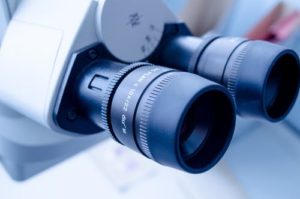The Role of the Reproductive Endocrinologist
Battling infertility sometimes involves a plethora of medical professionals, and the reproductive endocrinologist (RE) is usually at the center of this ensemble of individuals who are trying to make conception happen.
 The reproductive endocrinologist is an OB/GYN physician who specializes in diagnosing and addressing various endocrine disorders related to both the female and male reproductive systems. This individual has completed additional education in this field and, as such, will receive board certification by the American Board of Obstetrics and Gynecology in both Obstetrics and Gynecology and Reproductive Endocrinology and Infertility.
The reproductive endocrinologist is an OB/GYN physician who specializes in diagnosing and addressing various endocrine disorders related to both the female and male reproductive systems. This individual has completed additional education in this field and, as such, will receive board certification by the American Board of Obstetrics and Gynecology in both Obstetrics and Gynecology and Reproductive Endocrinology and Infertility.
The Reproductive Endocrinologist is qualified to address such disorders as:
- Endometriosis
- Polycystic Ovary Syndrome
- Hypothalamic pituitary disfunction
- Congenital adrenal hyperplasia
- Tubal factor infertility
- Male factor infertility
- Congenital uterine abnormalities
- Other female reproductive disorders
The reproductive endocrinologist can also assist with:
- In-vitro fertilization
- Fertility preservation
What does the Reproductive Endocrinologist do?
A typical day for an reproductive endocrinologist will be spent doing a variety of tasks associated with their job. Often, in the early hours of the day, the doctor sees patients who are currently undergoing fertility treatments or those who are newly pregnant, including those who might require bloodwork, ultrasounds, and other monitoring procedures.
The RE will also see patients for infertility consultations, usually individuals or couples who have been trying to conceive naturally for 6-12 months (depending on age) but have had no success. The RE can assess both male and female patients in order to arrive at a diagnosis and, eventually, a game plan that could lead to conception.
The reproductive endocrinologist might also be involved in surgical procedures and might spend part of his or her day performing in-vitro fertilization procedures (egg retrieval, embryo transfer, etc.) or perhaps other surgeries such as laparoscopies, hysteroscopies, and more.
The office of an RE is a busy one, largely because their patients are undergoing treatments that are based on their menstrual cycle. That means everyone is different so appointments are scheduled on a “must see” basis in many instances since it’s such a precise science. That leads to long hours for the dedicated RE and his/her staff since things like egg transfers and embryo transplants need to be done at very specific times.
The RE also needs to be the kind of person who is willing and able to offer emotional support. The field of infertility medicine is one that can go from joyous to heart-wrenching in an instant, and it takes a special person to be able to deal with the ups and downs his or her patients will experience.
The reproductive endocrinologist regularly deals with desperate emails, phone calls about failed procedures or miscarriages, and all the other things that go along with trying to conceive. The good and the bad are all part of such a practice and it takes someone who can be empathetic as well as professional to be a quality, caring RE.
Go back